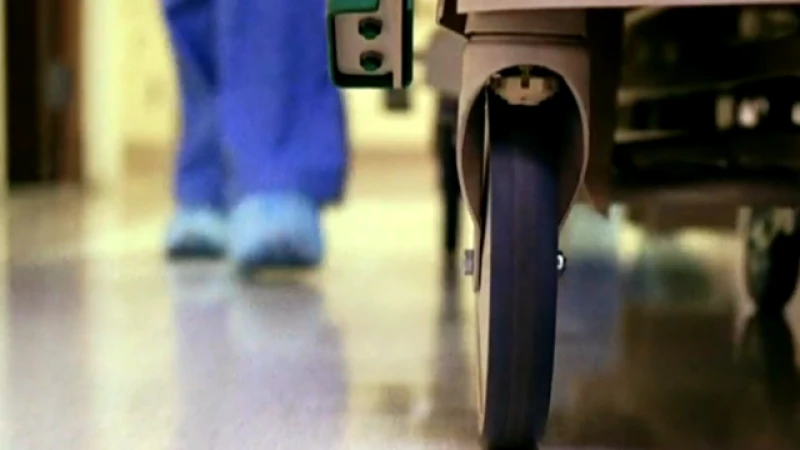Watch the CBS Reports documentary "No Place Like Home" in the video player above.
More than 16,000 people with intellectual and developmental disabilities, or IDD, are housed in institutions in the U.S., reports the Residential Information Systems Project. While that's significantly lower than nearly 200,000 people in the 1960s, there is more work to be done, says disability rights activist Rebecca Cokley.
Cokley, currently working as the disability rights program officer at the Ford Foundation, was born with achondroplasia, a common cause of dwarfism.
"We know that people with disabilities have a constitutional right…to live in the community," she told CBS News, pointing to the 1999 Supreme Court ruling in Olmstead v. L.C. "The promises made to make that transition to the community successful and possible for people with disabilities have never truly been fulfilled."
Patrick Cokley, her husband, is a senior program officer at the Robert Wood Johnson Foundation. Patrick has low vision and he and Rebecca are parents of children with disabilities.
"It is against the basic civil and human rights that we have established are a key part of American identity," he said. "Community living should be the rule, rather than the exception."
Ableism in health care still exists
"I don't want to live in the institution," 19-year-old Erin Compton, who lives at home with her family in Illinois, told CBS News. "It makes me feel discriminated against."
Not only Erin was born with Down syndrome, she also had a heart condition and gastrointestinal issues. When Erin was 10 months old, the doctor wanted to do a "very extreme" procedure to install a feeding tube, her mother, Diane, said.
"His reasoning was that way, when she's in the institution, she'll always get the nourishment she needs," she told CBS News. "His view of what needed to be done was supposed to trump our view of [being] as independent as possible."
A 2020 study published in the journal Rehabilitation Psychology looked at health care providers' attitudes towards people with disabilities. It found that while only a small segment explicitly preferred nondisabled people, a majority of providers implicitly favored people without disabilities.
Unfair treatment, in turn, means many patients with disabilities are delaying medical care, — or not getting it at all.
Octavia Byars says arranging care for her son TJ — who has cerebral palsy, epilepsy and chronic respiratory failure — can be difficult.
Such specialized care means she can't find a primary care doctor to take TJ on. A study published in 2022 showed only 41% of doctors interviewed were "very confident" in their ability to provide quality care to patients with disabilities.
That study noted, for example, some doctors' scales could not accommodate wheelchairs, so patients were told to go to a supermarket, a grain elevator, a cattle processing plant or a zoo to be weighed, or doctors would say the practice was closed.
Such prejudicial approaches towards people with disabilities are not uncommon. Rebecca Cokley recounted her own experience in a 2017 op-ed piece for CNN when her anesthesiologist crassly suggested sterilization when she was about to undergo a C-section to give birth to her second child.
"In a day where Buck vs. Bell is still law," she told CBS News, referring to the 1927 Supreme Court ruling that affirmed the constitutionality of involuntary sterilization and was never expressly overturned, "It's not surprising to me that the system continues to perpetuate the idea that institutions are an actual choice, when I don't know anybody that would choose to live in an institutional setting."
The push for individualized health care
Dr. Mai Pham, founder of the Institute for Exceptional Care and the mother of a son with autism, says more education will help change people's outdated assumptions about disabilities.
"This is not about having a standalone course," she told CBS News. "Just like diabetes, a condition like IDD creates a context that changes how you think about every other clinical decision."
It's also about creating health care that can accommodate people with and without disabilities through inclusive design. Though there may be more costs upfront, adapting the current health care structure to be more inclusive will be empowering for all and would ease the process for medical staff, Pham said.
Better data collection techniques — and including people with disabilities in the conversations — will help policy makers make informed decisions. There can be different definitions between federal agencies, but transparency is needed on which is used.
"How the country collects numbers on people with disabilities has echoes down the line and into people's real lives," Pham said, noting that any confusion will allow health care providers to delay or deny any proposed changes.
Health care officials and providers should embrace change. The swift integration of telehealth visits during the pandemic is evidence of this, according to Pham in an interview with CBS News.
"It took them only days or weeks to implement it once they had to," she remarked. "I view all the concerns about transitioning to a more inclusively designed health care system with skepticism."
Advocates are optimistic that through education, improved data, and the adoption of a more inclusive system, individuals with disabilities will benefit in the long term.
They also emphasize the need for a shift in focus to prioritize individuals in their health care, which should not be viewed as a strange or extreme idea.
"It must be comprehensive, person-centered, and incorporate support services," said Rebecca Cokley in an interview with CBS News, highlighting the importance of community living and other forms of assistance. "This is essential to prevent individuals from slipping through the cracks."







